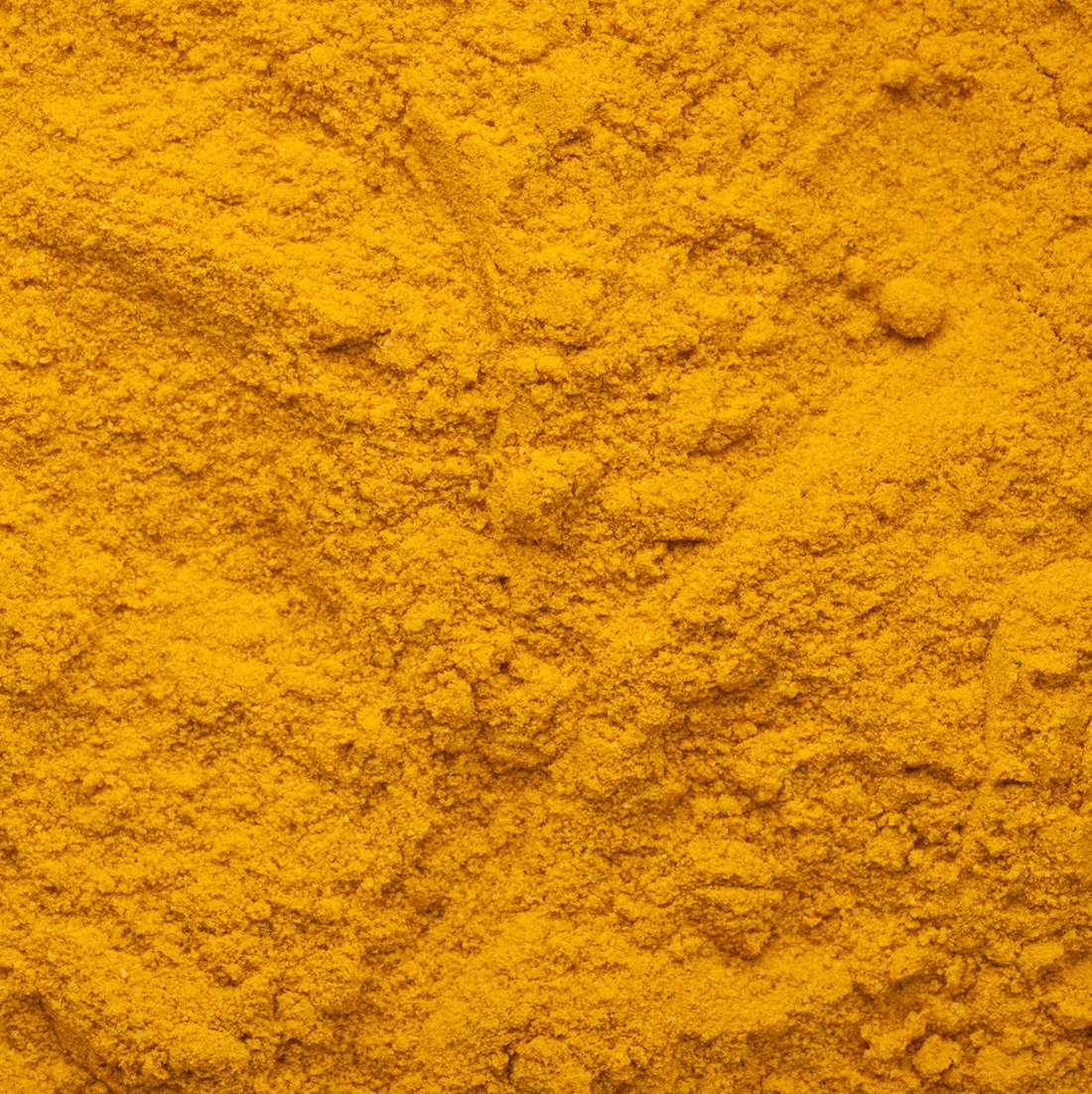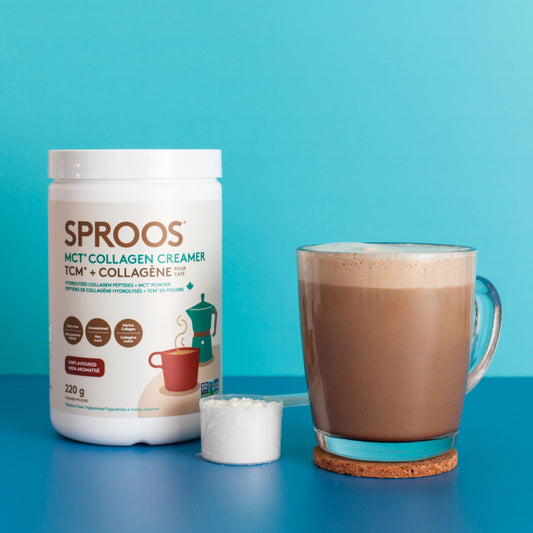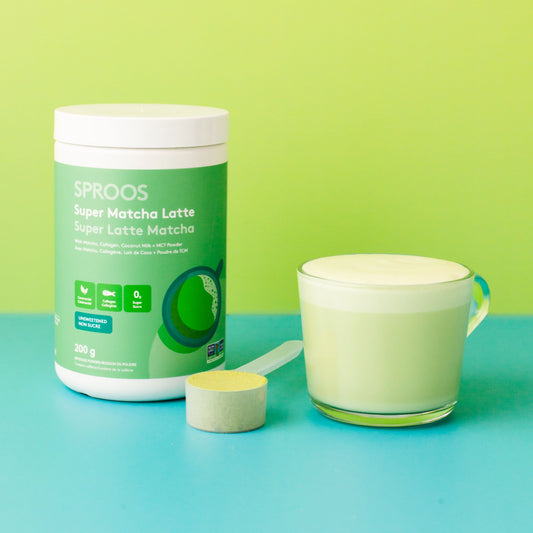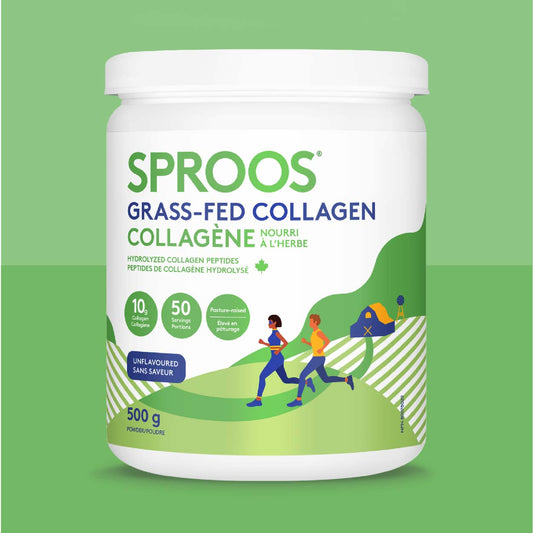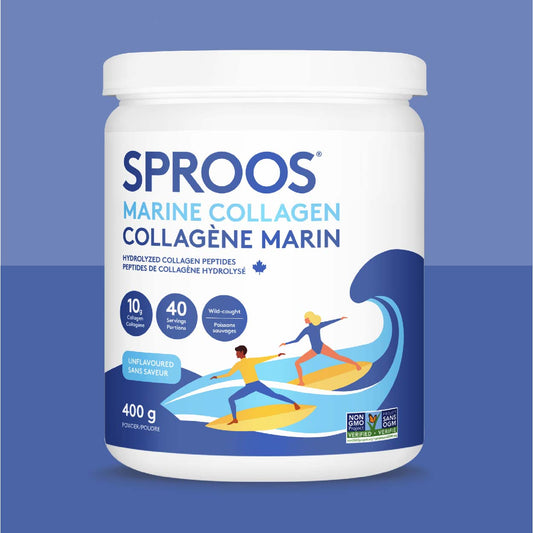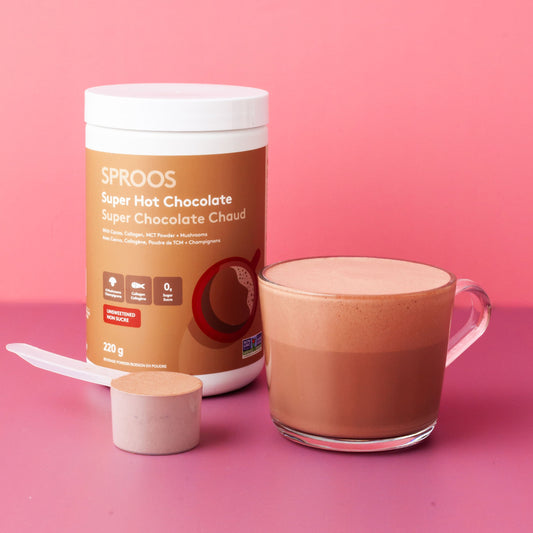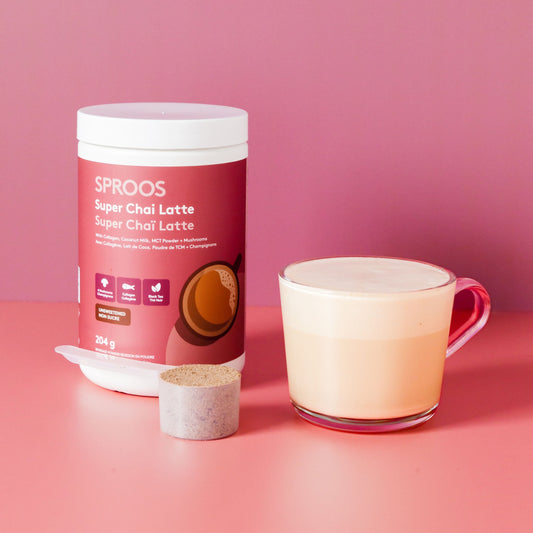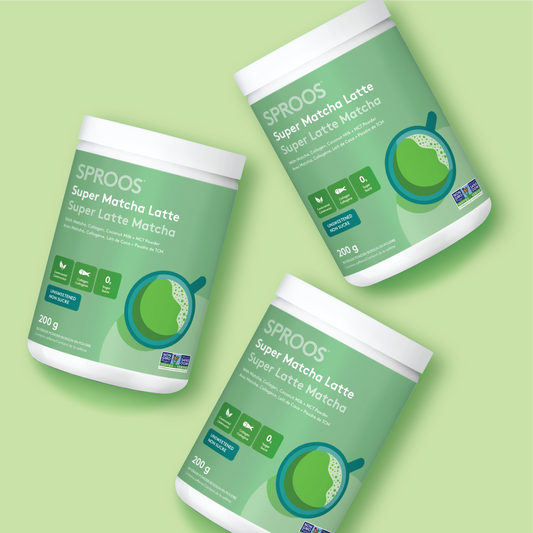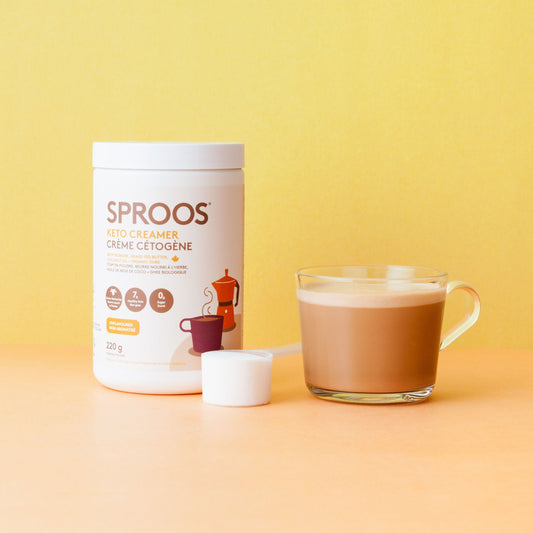Vous avez sûrement déjà entendu la nouvelle… Nous avons lancé un nouveau produit : notre Super Turmeric Latte ! L'ingrédient clé de notre tout nouveau produit : le curcuma. C'est une épice incroyable, riche en nombreux bienfaits pour la santé, alors plongeons-y.
Un bref historique du curcuma
Le curcuma a été utilisé pour la première fois il y a presque 4000 ans en Inde, mais il a atteint d'autres pays d'Asie et d'Afrique. Il était utilisé comme épice culinaire et pour diverses cérémonies religieuses. L'épice était utilisée dans la médecine traditionnelle indienne et populaire pour aider à de nombreux maux de santé. Certains de ces maux incluent des choses comme l'inflammation, les maladies infectieuses, les affections cutanées, les troubles gastriques et les troubles sanguins.
Aujourd'hui, le curcuma est cultivé dans les climats tropicaux et est utilisé partout dans le monde. Il provient des racines de la plante. Bien que l'épice soit largement utilisée en cuisine et en pâtisserie (restez à l'écoute pour des recettes à venir bientôt !), elle a aussi de nombreuses utilisations médicinales. De nombreux composants bioactifs différents ont été trouvés dans le curcuma. Ces composants bioactifs sont ceux qui exercent les bienfaits pour la santé lorsque nous consommons du curcuma !
Quels sont les composants bioactifs du curcuma ?
Tout d'abord, permettez-nous d'expliquer ce que sont exactement les composants bioactifs. Les plantes sont composées de différents composés et molécules. Certains de ces composés et molécules peuvent exercer un effet sur le corps. Ceux-ci sont appelés composants bioactifs.
Les composants bioactifs peuvent avoir des effets bons et mauvais sur le corps. Cependant, généralement pour avoir un effet négatif, une personne doit consommer de très grandes quantités dudit bioactif. Dans le curcuma, les composants bioactifs qui ont des effets positifs et favorables à la santé sur le corps se trouvent dans les racines de la plante. Il contient en fait beaucoup de composants bioactifs différents, et bien sûr, tous ces bioactifs ont des noms incroyablement compliqués.
Certains des composants bioactifs trouvés dans le curcuma incluent la curcumine, la diméthoxy-curcumine et la bisdéméthoxy-curcumine. Vous voyez, nous vous avions dit qu'ils avaient des noms compliqués ! La curcumine est le bioactif le plus couramment étudié trouvé dans le curcuma et elle est bien connue pour ses bienfaits pour la santé.
Comment le curcuma exerce-t-il ses bienfaits pour la santé ?
Des études ont montré que le curcuma peut exercer de nombreux bienfaits sur notre corps. La recherche a trouvé que le curcuma et ses composants bioactifs peuvent avoir des effets antioxydants, anti-inflammatoires, antimicrobiens et anti-tumoraux. Il peut également avoir des effets protecteurs sur notre cœur et nos systèmes cardiovasculaires, notre cerveau et notre foie.1. Antioxydant
Comme mentionné précédemment, de nombreuses molécules biologiquement actives différentes ont été isolées dans le curcuma. L'une de ces molécules s'appelle la curcumine. Il a été constaté que la curcumine possède une forte activité antioxydante. Elle agit en recherchant les espèces réactives de l'oxygène (également appelées ROS). Les ROS sont des molécules dans le corps qui peuvent causer des dommages. La curcumine est capable d'inhiber les molécules « mauvaises » qui favorisent l'activité des ROS. Elle augmente également l'activité de diverses autres molécules qui aident à lutter contre les ROS.2. Anti-inflammatoire
Divers composants du curcuma peuvent aider à combattre l'inflammation dans le corps. Cela se produit parce que le curcuma est capable d'inhiber ou de réduire la production de molécules qui favorisent l'inflammation. Le curcuma fait cela en bloquant diverses étapes dans la production de ces molécules, ou en diminuant l'activité de certaines enzymes dans le corps responsables de la création de ces molécules pro-inflammatoires.3. Antimicrobien
Des études ont montré que le curcuma peut avoir des effets antimicrobiens in vitro (c'est-à-dire : en dehors du corps, dans un laboratoire utilisant du matériel de laboratoire). Ces effets sont faibles, mais le curcuma peut inhiber la croissance de certaines bactéries, y compris certaines bactéries d'origine alimentaire.4. Anti-tumoral
Bien que peu d'études aient été menées sur l'effet du curcuma sur le cancer ou les tumeurs non cancéreuses chez l'humain, des recherches approfondies ont été faites sur les cellules cancéreuses in vitro. Rappelez-vous, in vitro signifie que ces études ont été réalisées sur des cellules isolées en laboratoire, pas sur des humains ! Le curcuma peut ralentir la croissance et la progression du cancer en supprimant la croissance des cellules cancéreuses et en induisant la mort des cellules cancéreuses.Quels problèmes de santé le curcuma peut-il aider à traiter ?
1. Arthrite
L'arthrite, et plus précisément l'ostéoarthrite, est une condition dans laquelle l'inflammation affecte le corps. Puisque le curcuma peut aider à réduire l'inflammation, il n'est pas surprenant que l'épice puisse aider à traiter l'arthrite. En fait, diverses études ont été menées.
Une étude en particulier était un essai randomisé en double aveugle contrôlé par placebo. Cette étude comprenait 40 personnes atteintes d'ostéoarthrite du genou. Les participants ont reçu soit un supplément de curcuma, soit un placebo. Après 6 semaines, les chercheurs ont constaté que ceux prenant le supplément de curcuma avaient amélioré leurs symptômes d'ostéoarthrite, notamment une diminution de la douleur et une meilleure mobilité par rapport à ceux prenant le placebo.
2. Syndrome métabolique
Avez-vous déjà entendu parler du syndrome métabolique ? C'est un terme désignant une variété de maladies qui surviennent souvent ensemble et vous exposent à un risque plus élevé de maladie cardiaque, d'accident vasculaire cérébral et de diabète de type II. Cela inclut l'hypertension artérielle, l'hyperglycémie, l'excès de graisse corporelle, des niveaux élevés de cholestérol ou de triglycérides (également appelés graisses ou lipides) dans le sang. Cependant, le curcuma peut aider à réduire les niveaux de lipides sanguins et de cholestérol, à supprimer la production de cellules graisseuses, à réduire la pression artérielle et à augmenter la sensibilité à l'insuline. Toutes ces découvertes suggèrent que le curcuma peut être utilisé pour aider à atténuer certains des risques associés au syndrome métabolique.3. Troubles gastro-intestinaux
Il est probable que vous ayez entendu parler de la maladie inflammatoire de l'intestin, de la maladie de Crohn et de la colite ulcéreuse. Ces trois maladies se caractérisent par une inflammation chronique du tractus gastro-intestinal. Parce que le curcuma possède des propriétés anti-inflammatoires, les chercheurs ont suggéré que le curcuma pourrait être bénéfique pour les personnes souffrant de ces maladies.
Une étude pilote a été réalisée chez des patients (adolescents) atteints de la maladie de Crohn ou de colite ulcéreuse. Les patients ont reçu diverses quantités de curcuma pendant la durée de l'étude. Il a été conclu que le curcuma, donné en conjonction avec divers médicaments, aidait en fait à soulager et améliorer certains des symptômes qu'ils ressentaient.
4. Maladies cardiovasculaires
Une caractéristique importante des maladies cardiovasculaires est l'inflammation dans le corps. Comme nous l'avons appris, le curcuma a la capacité de combattre l'inflammation par divers mécanismes. Pour cette raison, le curcuma pourrait aider à diminuer le risque de maladies cardiovasculaires.5. Troubles neurodégénératifs
Celle-ci est intéressante ! Les troubles neurodégénératifs sont des maladies cérébrales qui affectent la santé et la fonction du cerveau. Un exemple de maladie neurodégénérative est la maladie d'Alzheimer. Saviez-vous que les personnes atteintes d'Alzheimer ont souvent une inflammation et des niveaux élevés d'espèces réactives de l'oxygène (les méchants qui peuvent endommager nos cellules !) ? C'est là que la capacité du curcuma à avoir à la fois des propriétés antioxydantes et anti-inflammatoires est utile.
Qui aurait cru que le curcuma était si formidable ? Le curcuma a des capacités et des effets incroyables sur la santé humaine. Les scientifiques continuent de rechercher et de mieux comprendre tout ce que cet aliment peut nous offrir ! Si vous hésitiez à essayer notre tout nouveau produit, nous espérons vous avoir convaincu de l'essayer !
Commandez notre Super Turmeric Latte dès maintenant et restez à l'écoute pour des recettes à venir bientôt !
Sources
- Hewlings, S. J., & Kalman, D. S. (2017). Curcumin: A Review of Its’ Effects on Human Health. Foods, 6(10), 92.
- Kocaadam, B., & Şanlier, N. (2017). Curcumin, an active component of turmeric (Curcuma longa), and its effects on health. Critical Reviews in Food Science and Nutrition, 57(13), 2889–2895.
- Panahi, Y., Rahimnia, A.-R., Sharafi, M., Alishiri, G., Saburi, A., & Sahebkar, A. (2014). Curcuminoid Treatment for Knee Osteoarthritis: A Randomized Double-Blind Placebo-Controlled Trial. Phytotherapy Research, 28(11), 1625–1631.
- Prasad, S., & Aggarwal, B. B. (2011). Turmeric, the Golden Spice: From Traditional Medicine to Modern Medicine. In I. F. F. Benzie & S. Wachtel-Galor (Eds.), Herbal Medicine: Biomolecular and Clinical Aspects (2nd ed.). CRC Press/Taylor & Francis.
- Sharifi-Rad, J., Rayess, Y. E., Rizk, A. A., Sadaka, C., Zgheib, R., Zam, W., Sestito, S., Rapposelli, S., Neffe-Skocińska, K., Zielińska, D., Salehi, B., Setzer, W. N., Dosoky, N. S., Taheri, Y., El Beyrouthy, M., Martorell, M., Ostrander, E. A., Suleria, H. A. R., Cho, W. C., … Martins, N. (2020). Turmeric and Its Major Compound Curcumin on Health: Bioactive Effects and Safety Profiles for Food, Pharmaceutical, Biotechnological and Medicinal Applications. Frontiers in Pharmacology, 11, 01021.
- Suskind, D. L., Wahbeh, G., Burpee, T., Cohen, M., Christie, D., & Weber, W. (2013). Tolerability of Curcumin in Pediatric Inflammatory Bowel Disease: A forced dose titration study. Journal of Pediatric Gastroenterology and Nutrition, 56(3), 277–279.
 |
Allison GonzalezSpécialiste marketing chez SproosAllison a récemment obtenu une maîtrise en sciences de la santé humaine et des sciences nutritionnelles de l'Université de Guelph. Elle est passionnée par tout ce qui touche à la santé et au bien-être, et aime enseigner aux autres l'impact que la nourriture et la nutrition ont sur la vie quotidienne. Pendant son temps libre, elle adore faire de longues courses, prendre un café avec des amis et passer du temps à la plage (quand il ne fait pas froid dehors !). |

